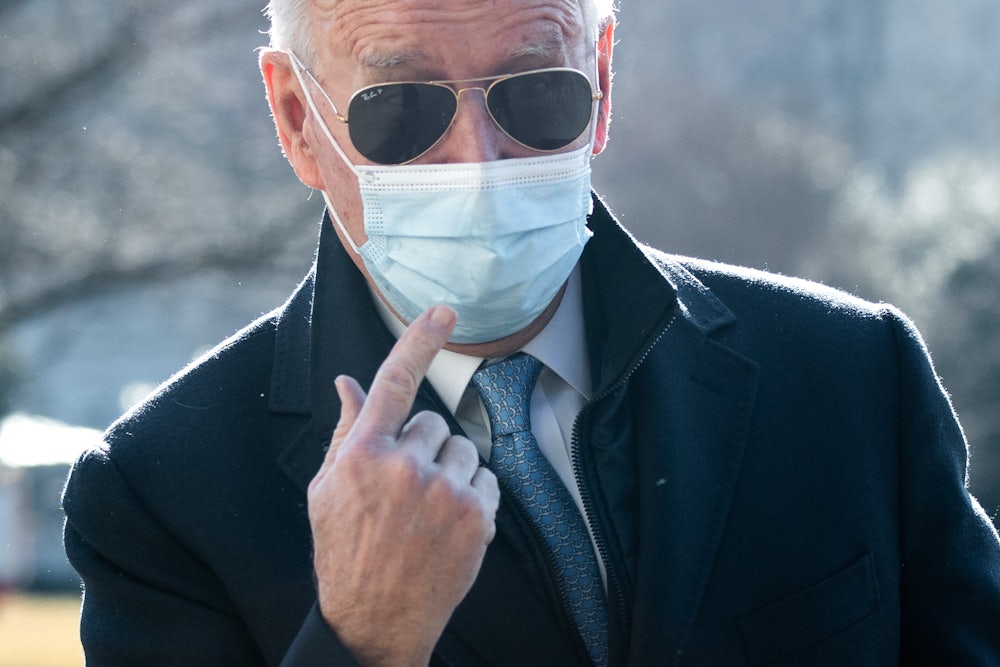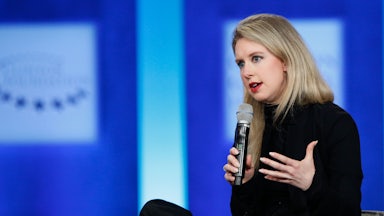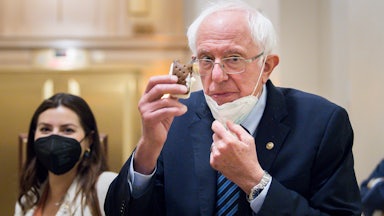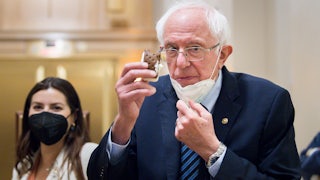President Biden is imposing the most comprehensive Covid vaccine mandates thus far, requiring federal employees and most private sector workers to get vaccinated.
The new mandates to combat the delta variant, which is starting to slacken economic growth and perhaps even the ferociously tight labor market, arrive after months of dithering within the Biden administration over how aggressively to police workplaces about Covid-19.
Biden pledged on his first day in office to have the Labor Department’s Occupational Safety and Health Administration prepare an “emergency temporary standard” to protect workers from Covid-19. But when the standard was released in June, OSHA applied it only to health care workers, and rather than require vaccinations, it merely “encouraged” them. In July, Biden said federal employees and contractors would have to be vaccinated or submit to Covid tests once or twice a week. After the Pfizer vaccine received formal Food and Drug Administration approval last month, the Pentagon said it would require military personnel to be vaccinated by mid-September.
Now Biden is directing OSHA to issue the broader emergency Covid standard that he called for as a presidential candidate in 2020. According to a description of the plan that the White House posted on Thursday afternoon, the new standard “will require all employers with 100 or more employees to ensure their workforce is fully vaccinated or require any workers who remain unvaccinated to produce a negative test result on at least a weekly basis before coming to work.” The standard will affect more than 80 million private sector workers, the White House said.
The plan also requires federal contractors to get vaccinated. There are all sorts of ways to define “federal contractors.” Initial wording from the White House (“employees of contractors that do business with the federal government”) seemed to cover every employee of every company that does business with the federal government, whether that employee worked on a federal contract or not. That would cover about 25 percent of the private workforce. But the executive order posted late Thursday defined federal contractors much more narrowly as only those individuals working on a federal contract and in federal offices in D.C. and around the country. (For wonks, the relevant language is: “the contractor or subcontractor shall, for the duration of the contract, comply with all guidance for contractor or subcontractor workplace locations published by the Safer Federal Workforce Task Force.”) This group numbers about five million workers, according to political scientist Paul Light of New York University, or about 4 percent of the private sector workforce.
In addition, Biden is ordering every health care facility in the country that participates in Medicare or Medicaid, which is just about all of them, to require that most of their employees be vaccinated. The White House estimates that to be about 17 million people, or about 14 percent of the private sector workforce. This 14 percent overlaps somewhat with the aforementioned 4 percent, making it hard to calculate exactly what proportion of the private U.S. labor force will be affected overall. But when you add in workers covered by the forthcoming OSHA standard requiring vaccination or weekly testing, which covers two-thirds of the private workforce, it becomes clear that it’s the rare private employee who won’t be covered by one or another of Biden’s new Covid requirements. (The Washington Post created a Twitter frenzy by suggesting that postal workers aren’t covered because technically they aren’t federal workers. That isn’t correct. Postal workers will be covered by the OSHA standard.)
There’s bound to be some pushback. Larry Cosme, president of the Federal Law Enforcement Officers Association, put the Biden administration on notice in July that his union would oppose mandatory vaccination. “Forcing people to undertake a medical procedure is not the American way,” he said, “and is a clear civil rights violation no matter how proponents may seek to justify it.”
Cosme’s just wrong about that. The Equal Employment Opportunity Commission clarified in May that private employers may impose vaccine mandates. Every state requires public schoolchildren to be vaccinated against various diseases, and most require health care workers to be vaccinated against certain diseases. The Pentagon requires that soldiers receive certain vaccinations. For these populations, it’s simply a matter of adding one more vaccine to the list. All states exempt people with medical conditions that make vaccination inadvisable.
Most states also allow religious exemptions, even though these claims are utter nonsense. The vast majority of anti-vaxxers are Christians, and “there is no actual religious basis for exemptions from vaccine mandates in any established stream of Christianity,” wrote Curtis Chang, a consulting faculty member at Duke Divinity School, in a recent op-ed in The New York Times. “Even the sect of Christian Scientists, which historically has abstained from medical treatment, has expressed openness to vaccines for the sake of the wider community.” When extremist evangelical ministers tell their flocks that Covid vaccination leaves “the mark of the beast,” they aren’t drawing on any identifiable evangelical tradition. “As a child,” Chang wrote, “I attended evangelical summer camps that required vaccinations” (italics mine).
Federal workers are the least significant component of Biden’s new policy. Fewer than two million people work directly for the the federal government, which, contrary to popular opinion, isn’t much larger, personnel-wise, than it was half a century ago. The growth in federal employment that conservatives complain about has been within their beloved private sector. In addition to the five million people who work on federal contracts, about six million, Light estimates, work on state and local contracts funded by grants from the federal government. These workers don’t appear to be included in Biden’s new plan.
I’ve been very hard on Biden’s reluctance to impose health protections against Covid-19 in the workplace. He waited way too long. But he seems now to be making good on his promises. With new Covid cases approaching January’s levels, Thursday’s moves are better late than never.
This article has been updated.








